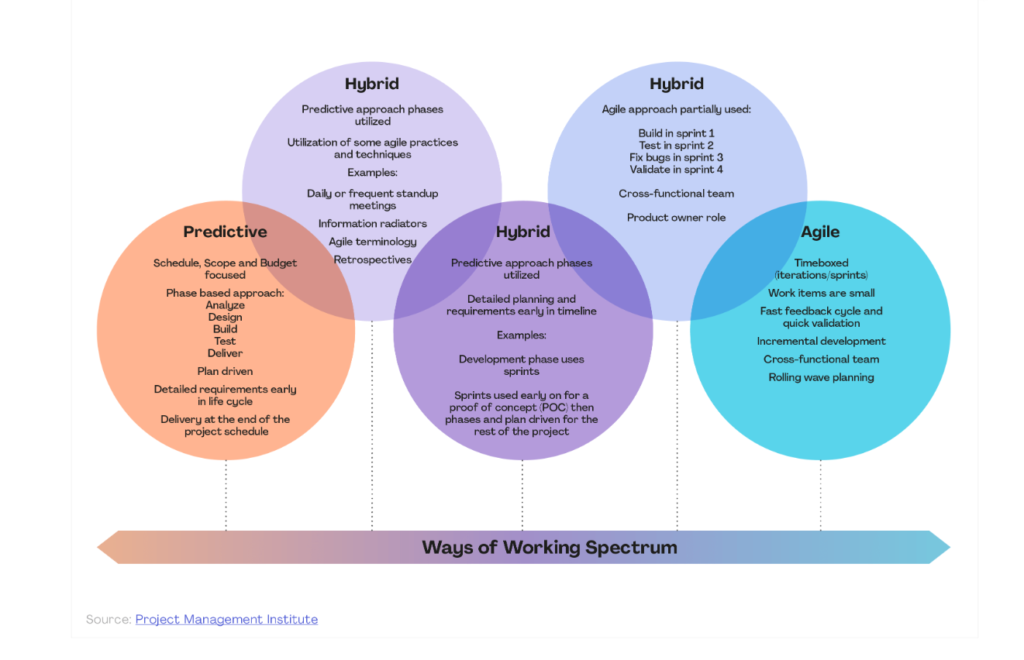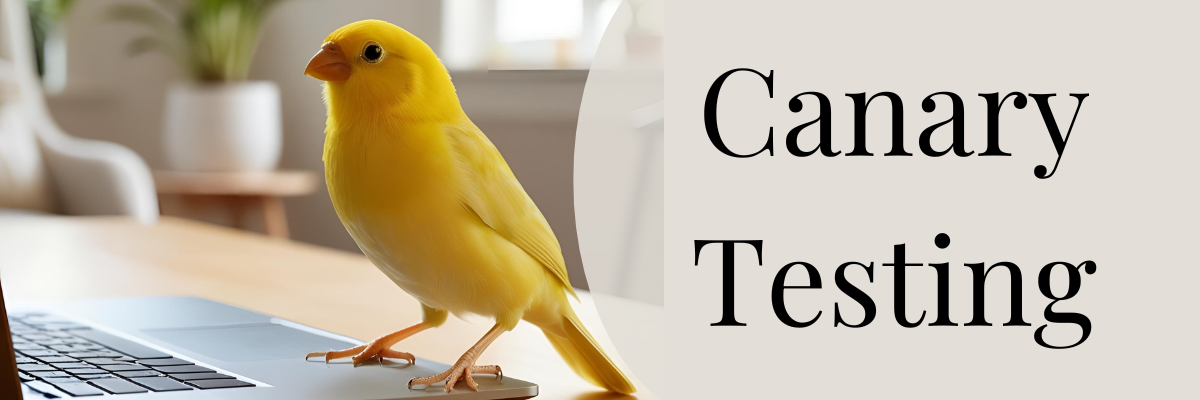In a recent exploration of project management trends (read full article here), *PMI.org sheds light on the increasing adoption of hybrid approaches, signaling a significant shift in project management methodologies. Let’s take a deeper look into the insights from the article and explore the implications for project managers and organizations worldwide.
Embracing the Hybrid Approach: A Summary
- Today’s project managers are embracing hybrid approaches more than ever, blending practices from predictive and agile methodologies to suit the unique demands of their projects.
- Research from PMI indicates that project performance rates remain consistent across various management approaches, suggesting that organizations are effectively choosing the right methodologies for their projects.
- The spectrum of hybrid project management ranges from predictive to agile, with organizations combining practices to create a tailored approach that balances predictability and adaptability.
Trends in Hybrid Adoption and Patterns
- Over the past three years, there has been a steady increase in the use of hybrid approaches, with a notable 57% increase reported from 2020 to 2023.
- While predictive methodologies remain common, there’s a noticeable decline, indicating a shift towards more adaptive practices.
- Financial services organizations lead in agile adoption, while construction organizations favor predictive approaches. This divergence underscores the importance of tailoring methodologies to suit the unique characteristics and requirements of different industries.
Crafting the Winning Blend: Unique to Each Organization
- The winning blend of hybrid approaches varies based on project characteristics, industry sector, organizational culture, and existing frameworks.
- Agile practices can be integrated across various project functions, such as team management, communication, planning, and monitoring, depending on specific project needs and constraints.
Fit-for-Purpose Approach: Enhancing Project Delivery
In today’s evolving business landscape, the concept of a “fit-for-purpose” approach to project management gains prominence. This approach emphasizes the need to tailor project management methodologies to the specific requirements of each project, rather than adhering to rigid frameworks.
- By adopting a fit-for-purpose approach, organizations can leverage hybrid project management methodologies to strike the right balance between predictability and adaptability.
- This approach recognizes that there is no one-size-fits-all solution and encourages project managers to assess project characteristics, stakeholder needs, and environmental factors to determine the most suitable approach.
- With a focus on delivering value and achieving project objectives, the fit-for-purpose approach empowers project teams to make informed decisions and adjust their methodologies as needed throughout the project lifecycle.
Moving Beyond the Emphasis on Approach
- The choice of project management approach alone does not significantly impact project performance rates, as evidenced by research findings.
- Organizations are recognizing the value of combining approaches to balance predictability, adaptability, and innovation, aligning with the demands of the digital era.
- Standardized practices remain crucial, but the focus is shifting towards developing interpersonal skills and industry-specific knowledge to drive greater project performance and results.

The insights provided by PMI.org’s exploration of hybrid project management underscore the evolving nature of project management practices. It’s clear that there’s no one-size-fits-all approach, and organizations must adapt their methodologies to meet the unique demands of each project.
The statistics shared through PMI’s study further validate the efficacy of hybrid approaches. Over the past three years, there has been a significant uptick in the adoption of hybrid methodologies, with a notable 57% increase reported from 2020 to 2023. This surge highlights a growing recognition among organizations of the need to integrate predictive and agile practices to effectively manage projects in a rapidly evolving environment.
For instance, consider a consulting firm tasked with delivering a project within tight constraints of budget and timeline. By adopting a hybrid approach, the team can leverage agile ceremonies such as sprint planning, backlog grooming, and daily stand-ups to ensure iterative progress towards project goals while maintaining predictability through detailed planning and budgeting.
Moreover, with the rise of remote work, the emphasis on outcome-oriented approaches over process-driven methodologies has become more pronounced. Hybrid project management, with its focus on delivering results regardless of physical location, aligns perfectly with the demands of remote collaboration and distributed teams.
PMBOK Guide and Hybrid Project Management: A Metamorphosis?
Hybrid project management isn’t a departure from the principles outlined in the PMBOK Guide; rather, it serves as a complementary approach that enriches and extends the guidance provided by PMI. Here’s how hybrid project management aligns with and enhances PMI’s overall guidance:
- Flexibility within Frameworks: PMI has always emphasized the importance of flexibility within project management frameworks. While the PMBOK Guide provides a structured framework for managing projects, it acknowledges that every project is unique and may require tailored approaches. Hybrid project management embraces this principle by allowing project managers to blend predictive and agile methodologies based on the specific needs of each project.
- Adaptability to Change: One of the core principles of agile methodologies is adaptability to change, a concept that aligns closely with PMI’s emphasis on proactive risk management and change control. Hybrid project management combines the agility of iterative development with the discipline of traditional project management processes, enabling teams to respond effectively to changing requirements and stakeholder needs.
- Integration of Best Practices: PMI promotes the integration of best practices from various sources into project management processes. Hybrid project management embodies this principle by incorporating proven practices from both predictive and agile methodologies. By leveraging the strengths of each approach, project managers can create more robust project management frameworks that drive results.
- Focus on Delivering Value: At its core, PMI’s guidance emphasizes delivering value to stakeholders through effective project management practices. Hybrid project management reinforces this focus by prioritizing the delivery of tangible outcomes over adherence to rigid processes. By embracing hybrid approaches, organizations can optimize their project management practices to maximize value creation and achieve project success.
In essence, hybrid project management isn’t a departure from PMI’s guidance; rather, it represents an evolution and enrichment of traditional project management practices. By embracing hybrid approaches, project managers can leverage the best of both worlds to drive results, adapt to change, and deliver value to stakeholders effectively.
*PMI.org. “Future of Project Work: Moving Past Office-Centric Models” Accessed 3/15/2024. [Link to the article]





